Donald Trump’s election as the next U.S. president surprised observers around the world. His campaign rhetoric has left many U.S. allies, in particular, deeply concerned; adversaries, for their part, look forward to the dismantling of many of President Obama’s foreign policy priorities.
For one key ally—Turkey—considerable uncertainty hangs in the air. With U.S.-Turkey relations already on the rocks, this does not bode well. But that’s more because of uncertainties in Turkey than uncertainties with Trump.
Troubled water
Most countries in the Middle East have not been happy with the Obama administration’s policies towards the region: Saudi Arabia and Israel were very critical of the Iran nuclear deal; no Arab capital was comfortable with Washington’s attitude towards the Arab Spring; failure to enforce the “red line” on the use of chemical weapons that Obama drew in Syria disappointed Riyadh and Ankara; Iran and the United States have been on opposite sides in the Syria conflict; and U.S. tolerance of the Saudi-led intervention in Yemen has upset Tehran, while Iran’s deep involvement in Iraq has profoundly disturbed Riyadh. Ankara, for its part, has broken from established practice and intervened in the Syrian chaos, complicating its relations with Iran. In short, all the regional players have specific agendas, and it’s rare to find any two agreeing fully.
This is a picture that President Obama had aspired to avoid. On September 20, 2016 he addressed the U.N. General Assembly (UNGA) for the last time. Regarding the Middle East, he made clear his disappointment with governments that have muzzled journalists, quashed dissent, and censored the flow of information; with the emergence of ethnic enclaves and tribal divisions (and along with them, sectarianism or worse, such as extremism, bloodletting, retribution); and with politics and elections often construed as zero-sum games. He rejected the notion that top-down authoritarian models and strongmen leaders were the answer to the region’s troubles, and made a plea for building strong, democratic institutions.
While many of the Middle East’s leaders wouldn’t have accepted such critiques, Obama did not close the door to cooperation. In fact, three years earlier he had told the same Assembly—to the chagrin of many, particularly in the democracy promotion and human rights communities—that the United States will at times work with governments that do not meet the highest international expectations, but who work with Washington on America’s core interests. This sometimes proves to be a costly task, a case in point being Washington’s support for the Saudi-led intervention in Yemen, which has caused considerable human suffering and destruction—not to mention disregard for human rights.
Here comes the sun?
The Obama administration’s relations with Ankara have been a story of a different order. The president arrived in Turkey in April 2009, after attending a G-20 summit in London, a NATO summit in Strasbourg, and an EU summit in Prague. In other words, this was his first bilateral visit abroad. Following remarks from his address to the Turkish Grand National Assembly on April 6, 2009 reflected the purpose of the visit:
“This morning I had the great privilege of visiting the tomb of your extraordinary founder of your republic. And I was deeply impressed by this beautiful memorial to a man who did so much to shape the course of history. But it is also clear that the greatest monument to Atatürk’s life is not something that can be cast in stone and marble. His greatest legacy is Turkey’s strong, vibrant, secular democracy, and that is the work this assembly carries on today.”
The essence of the message: “Turkey, with its secular democracy, has set an example for the Islamic world. Turkey should continue this path, and others should follow.”
This was a remarkable reset in bilateral relations that aspired to put into place a “model partnership,” coming on the heels of the Bush administration’s disappointment with Turkey for refusing to participate fully in the 2003 invasion of Iraq. However, the Obama-led U.S.-Turkey “reset” did not last. The ruling Justice and Development Party (AKP) got deeply involved in Arab Spring developments—but proxy wars, especially in Syria, boomeranged and derailed Turkey’s already faltering democracy. In turn, these developments fueled a downturn in relations with Washington. The failed coup attempt this July and Washington’s refusal to extradite Fethullah Gülen (seen as the coup’s mastermind) before due process occurred, took the relationship to new lows. In brief, today the magic of Obama’s 2009 visit is nothing but a fond memory.
Whose uncertainty?
Turkey is still a developing economy. It is a Muslim country, straddling Europe and Asia. It belongs to the Balkans, the Caucasus, and the Middle East, and as such is still searching for an identity that will last. According to a Pew survey conducted in 2013, 67 percent of Turks preferred democracy over a leader with a strong hand. However, the country is going through a tense period marked partly by the government’s determination to replace Turkey’s long standing parliamentary system with a heavily centralized presidential one via a referendum in early 2017. The outcome will reveal either the validity of Pew’s findings or the rapid shifting of Turks’ priorities.
The path to the referendum may adversely impact Turkey’s already deteriorating relations with the EU. As the latest European Parliament vote on the suspension of talks with Turkey shows, the accession process is not going anywhere. Traditionally, U.S. administrations have encouraged Turkey’s democratization and its anchoring in the Western-led liberal international order, and have supported Turkey’s bid for membership in the EU. A total rupture, however, may not cause the Trump administration much grief.
Instead, Turkey is now flirting with the idea of joining the Shanghai Cooperation Organization (SCO) as an alternative to the EU. However, the SCO’s founding principles require members to adhere to the principle of non-alignment. This may not be compatible with Turkey’s NATO obligations, unless Ankara is prepared to undertake a much more major policy shift. And, that may be a problem for any U.S. administration—including that of Mr. Trump.
Turkish foreign policy’s outstanding characteristic has become its unpredictability.
In 2004, Turkey’s current government pledged to have “zero problems with neighbors.” Instead, in the course of the last few years, Turkey has ended up with “zero neighbors without problems.” More recently, it has made efforts to make up with Russia and Israel. Yet, Turkey’s reconciliation with Russia remains far from assured and contingent on Turkey’s policies in Syria. Reconciliation with Israel appears to be restricted to a recent exchange of ambassadors with little love lost. If carried out, Trump’s promise to move the American embassy in Israel to Jerusalem may lead to a new set of trilateral frictions. Relations with Saudi Arabia and Qatar, Turkey’s de facto allies against the Assad regime, may be subject to fluctuations too, especially if Trump chooses to work more closely with Russia in Syria. Relations with Iraq are extremely tense. Relations with Tehran continue to reflect a certain stability, but Syria remains a divisive issue. In brief, Turkish foreign policy’s outstanding characteristic has become its unpredictability.
So, the future of U.S.-Turkey relations remains uncertain—more so, perhaps, because of lack of clarity on Turkey’s foreign policy intentions than question marks regarding Mr. Trump’s. Forging a strong partnership with a democratic Turkey was a clear Middle East priority for President Obama. And, at the outset at least, conditions appeared to be very favorable for such an endeavor. Yet, the good chemistry did not last. Today, the bilateral relationship is faced with a number of challenges, and overcoming them will not be an easy task.
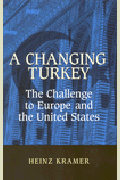

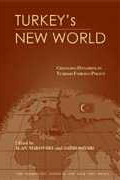
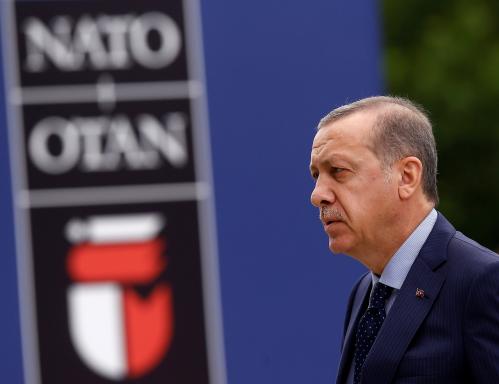

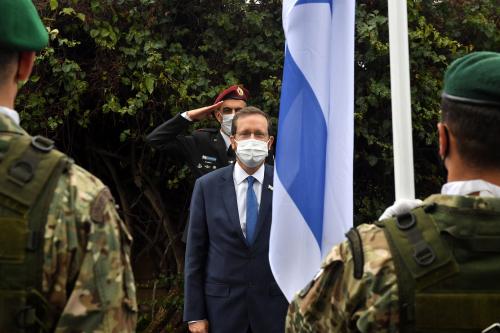


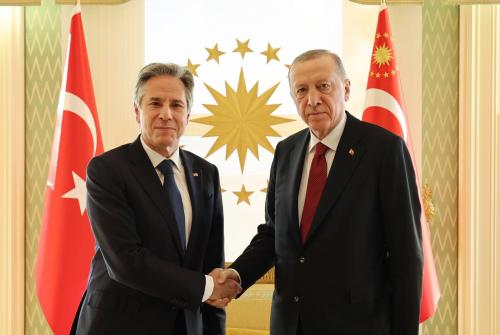
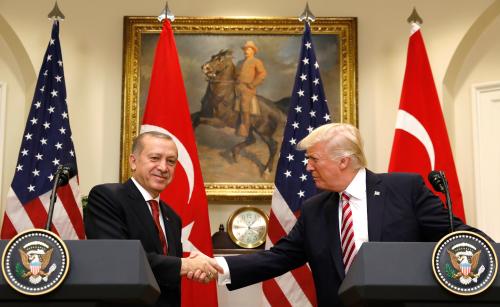
Commentary
U.S.-Turkey relations under Trump may hinge more on Turkey than on Trump
November 30, 2016